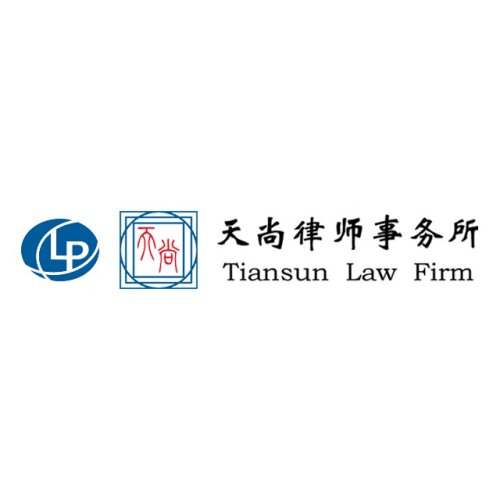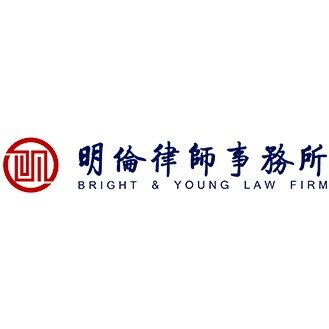Best Business Registration Lawyers in China
Share your needs with us, get contacted by law firms.
Free. Takes 2 min.
Or refine your search by selecting a city:
List of the best lawyers in China
About Business Registration Law in China
Business registration in China is a crucial step for anyone looking to establish a legal entity within the country. The process is governed by several laws and regulations aimed at ensuring compliance and promoting fair competition among businesses. The primary legislation includes the "Company Law" of the People's Republic of China, the "Foreign Investment Law," and other related administrative regulations. The aim of these laws is to streamline the process, protect stakeholders' interests, and foster a healthy business environment.
Why You May Need a Lawyer
Engaging with the business registration process in China can be complex due to the myriad of local regulations, language barriers, and specific legal requirements. Here are common situations where legal assistance is beneficial:
- **Foreign Investment:** Understanding and complying with foreign investment regulations.
- **Joint Ventures:** Setting up partnerships with local businesses can require legal oversight to navigate joint venture agreements.
- **Compliance:** Ensuring ongoing compliance with local laws and regulations to avoid penalties or other legal issues.
- **Document Preparation:** Drafting and interpreting key documents and contracts necessary for registration.
- **Dispute Resolution:** Handling any legal disputes that may arise during or after registration.
Local Laws Overview
The business registration process in China involves several key aspects of local laws:
- **Legal Structure:** Choosing the appropriate legal structure (e.g., Wholly Foreign-Owned Enterprise, Joint Venture, Representative Office) is critical and depends on the nature and scope of business operations.
- **Industry Restrictions:** Certain industries may have restrictions or additional requirements for foreign entities.
- **Capital Requirements:** A defined minimum registered capital is required, which varies by industry and location.
- **Approval Processes:** Industries classified as 'restricted' or 'prohibited' require additional approvals from relevant authorities.
- **Taxation and Reporting:** Understanding local tax obligations and financial reporting requirements is essential for compliance.
Frequently Asked Questions
1. What types of business structures are available in China?
China offers several business structures, including Wholly Foreign-Owned Enterprises (WFOE), Joint Ventures (JV), Representative Offices, and Partnerships. Each has its own regulatory requirements and benefits.
2. Can a foreigner own a company in China?
Yes, foreigners can own a company in China, typically through a WFOE or a JV. There are industry-specific regulations that govern such ownership.
3. How long does the business registration process take?
The business registration process usually takes between one to three months, depending on the business structure, industry, and specific local regulations.
4. What are the key documents required for business registration?
Key documents often include the intended company name, business license application, legal representative identification, Articles of Association, and office lease agreement, among others.
5. Do I need a physical office space in China to register my business?
Yes, you will generally need a registered office space in China to validate the business location as part of the registration process.
6. What is a registered capital and is there a minimum requirement?
Registered capital is the total amount of equity or investment declared to operate a business, and while there is no strict minimum, it should reflect the scale of business operations and meet any specific industry regulations.
7. What industries are restricted to foreign investment?
Industries such as media, education, and telecommunications are typically restricted for foreign investment, requiring special permissions or partnerships with local entities.
8. How can I ensure compliance with local laws after registration?
To ensure compliance, it is advisable to engage legal and accounting experts familiar with local regulations for ongoing consultations.
9. Do I need to register for any taxes?
Yes, you will need to register for various taxes, including value-added tax (VAT) and corporate income tax, depending on your type of business and location.
10. Can I change my business structure after registration?
Yes, changes to the business structure are possible but require approval from relevant authorities and may involve additional legal procedures.
Additional Resources
If you're looking for more information on business registration in China, consider the following resources:
- **Ministry of Commerce of the People's Republic of China (MOFCOM):** Provides details on foreign investment guidelines.
- **Administration for Market Regulation (SAMR):** Responsible for registration and other regulatory tasks.
- **Local Chambers of Commerce:** Can offer guidance and networking opportunities for foreign businesses.
Next Steps
If you're considering legal assistance for business registration in China, here are some suggested steps:
- **Consult with a Law Firm:** Reach out to law firms with experience in Chinese business registration and foreign investment law.
- **Prepare Documentation:** Gather necessary documents and consider working with bilingual professionals to ease communication.
- **Schedule a Consultation:** Discuss your business objectives and receive tailored advice for your situation.
- **Plan for Compliance:** Establish a strategy for continued legal compliance with the help of local experts.
Ensuring that you have the appropriate legal guidance can significantly smooth the process of establishing and maintaining a business presence in China.
Lawzana helps you find the best lawyers and law firms in China through a curated and pre-screened list of qualified legal professionals. Our platform offers rankings and detailed profiles of attorneys and law firms, allowing you to compare based on practice areas, including Business Registration, experience, and client feedback.
Each profile includes a description of the firm's areas of practice, client reviews, team members and partners, year of establishment, spoken languages, office locations, contact information, social media presence, and any published articles or resources. Most firms on our platform speak English and are experienced in both local and international legal matters.
Get a quote from top-rated law firms in China — quickly, securely, and without unnecessary hassle.
Disclaimer:
The information provided on this page is for general informational purposes only and does not constitute legal advice. While we strive to ensure the accuracy and relevance of the content, legal information may change over time, and interpretations of the law can vary. You should always consult with a qualified legal professional for advice specific to your situation.
We disclaim all liability for actions taken or not taken based on the content of this page. If you believe any information is incorrect or outdated, please contact us, and we will review and update it where appropriate.
Browse business registration law firms by city in China
Refine your search by selecting a city.













